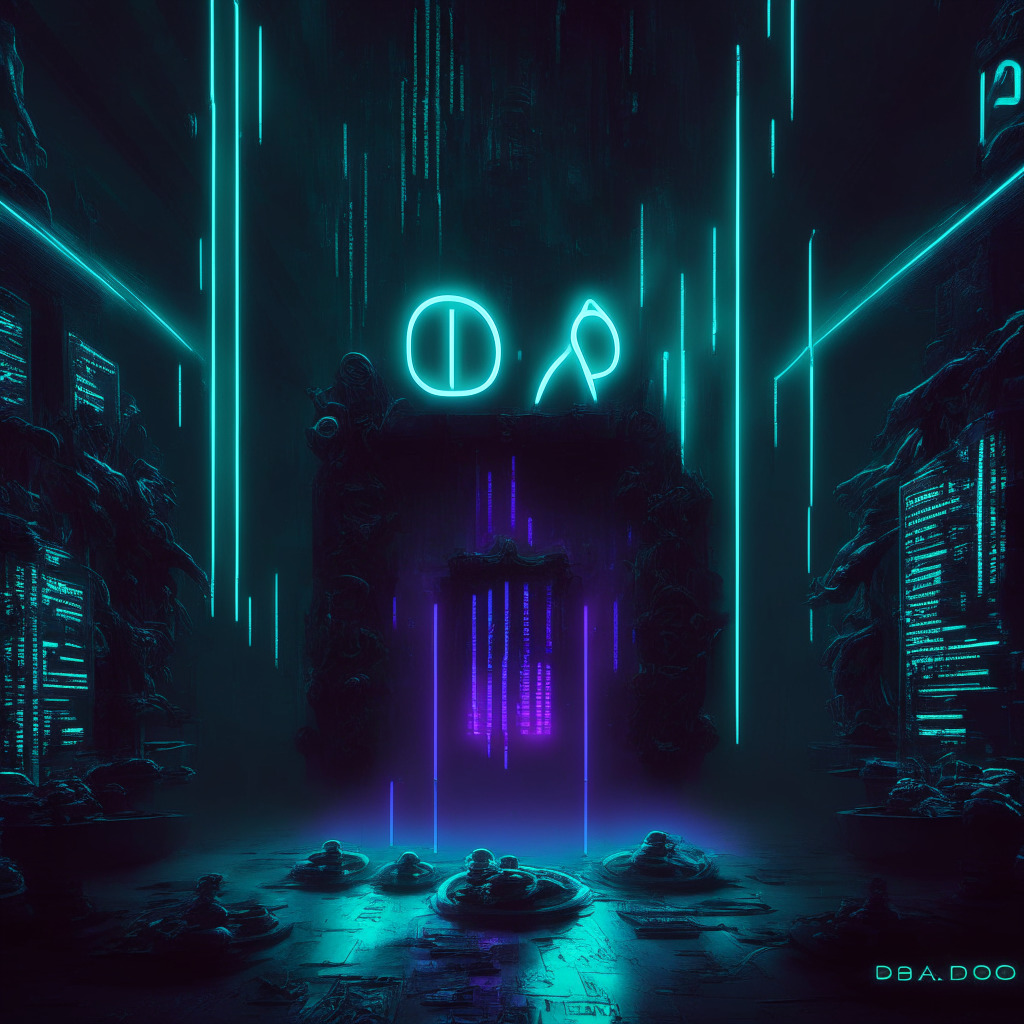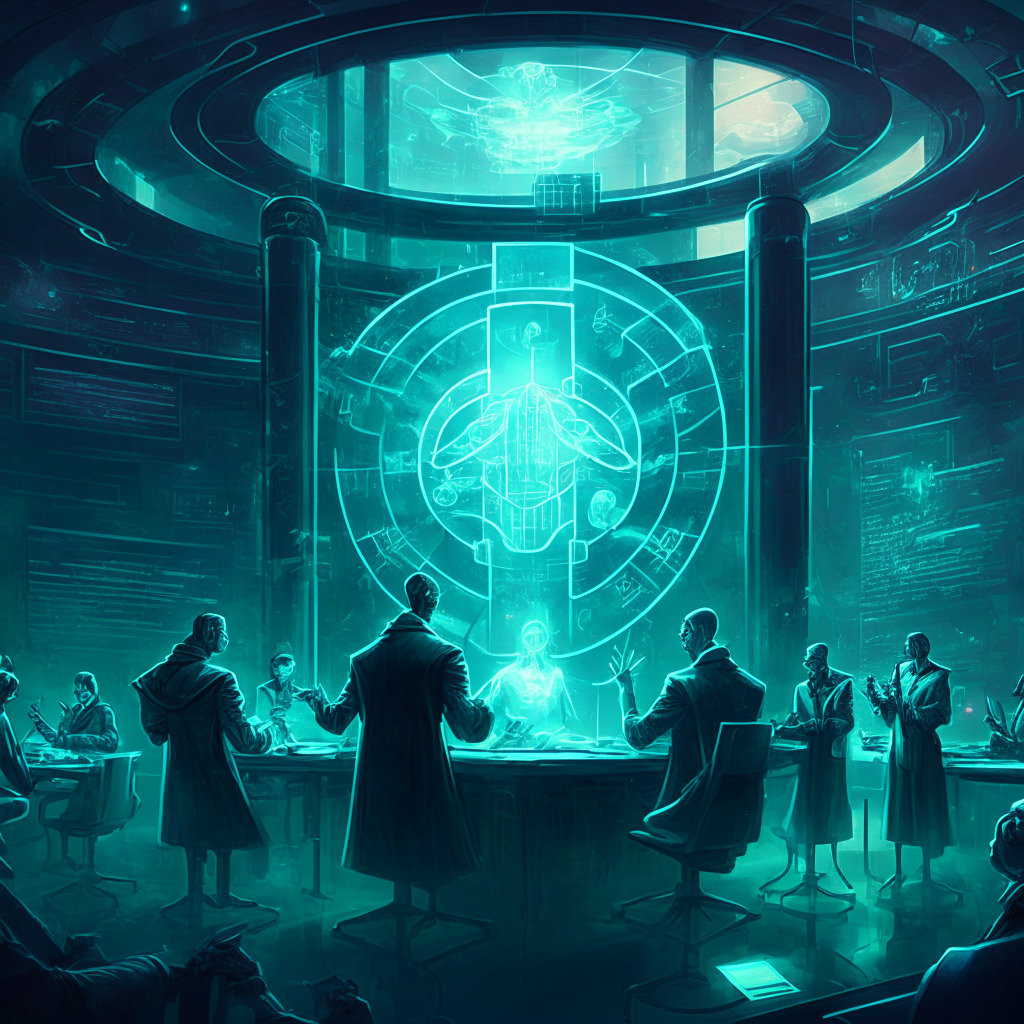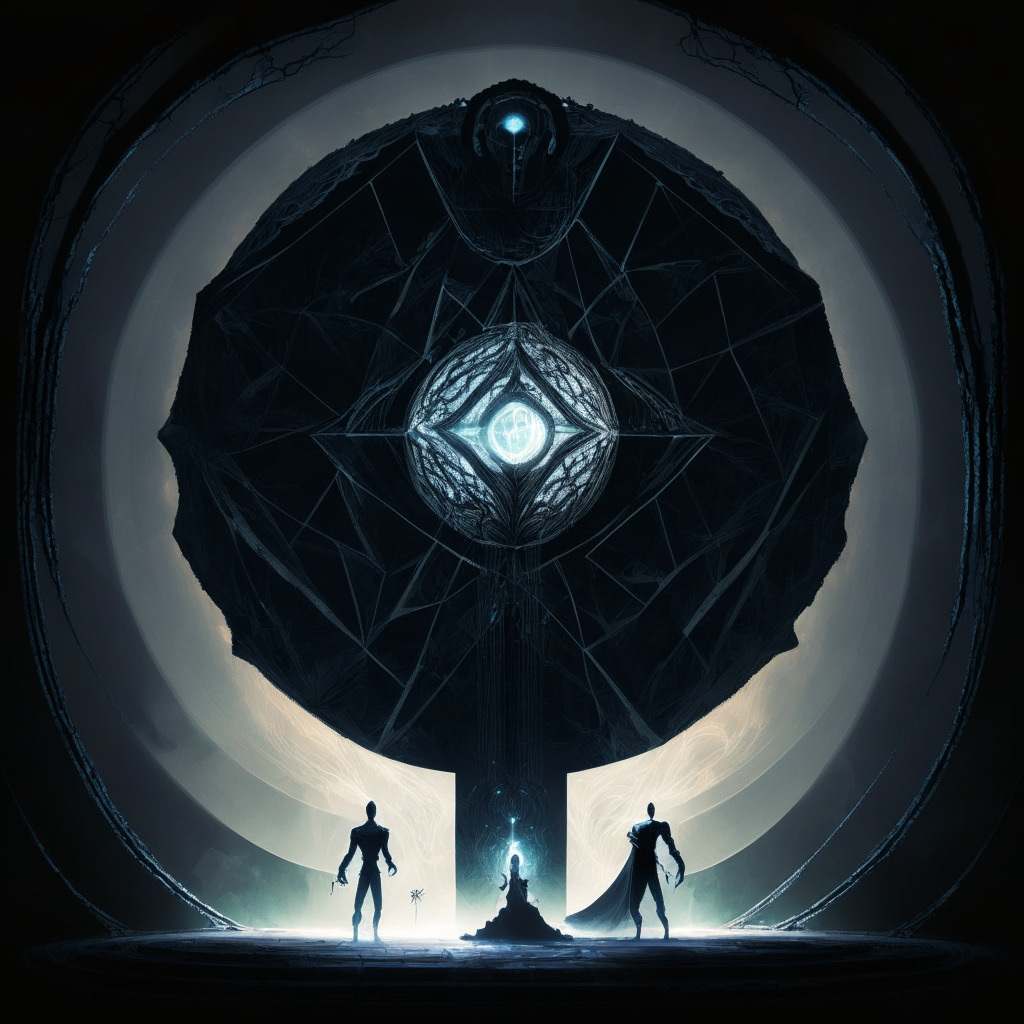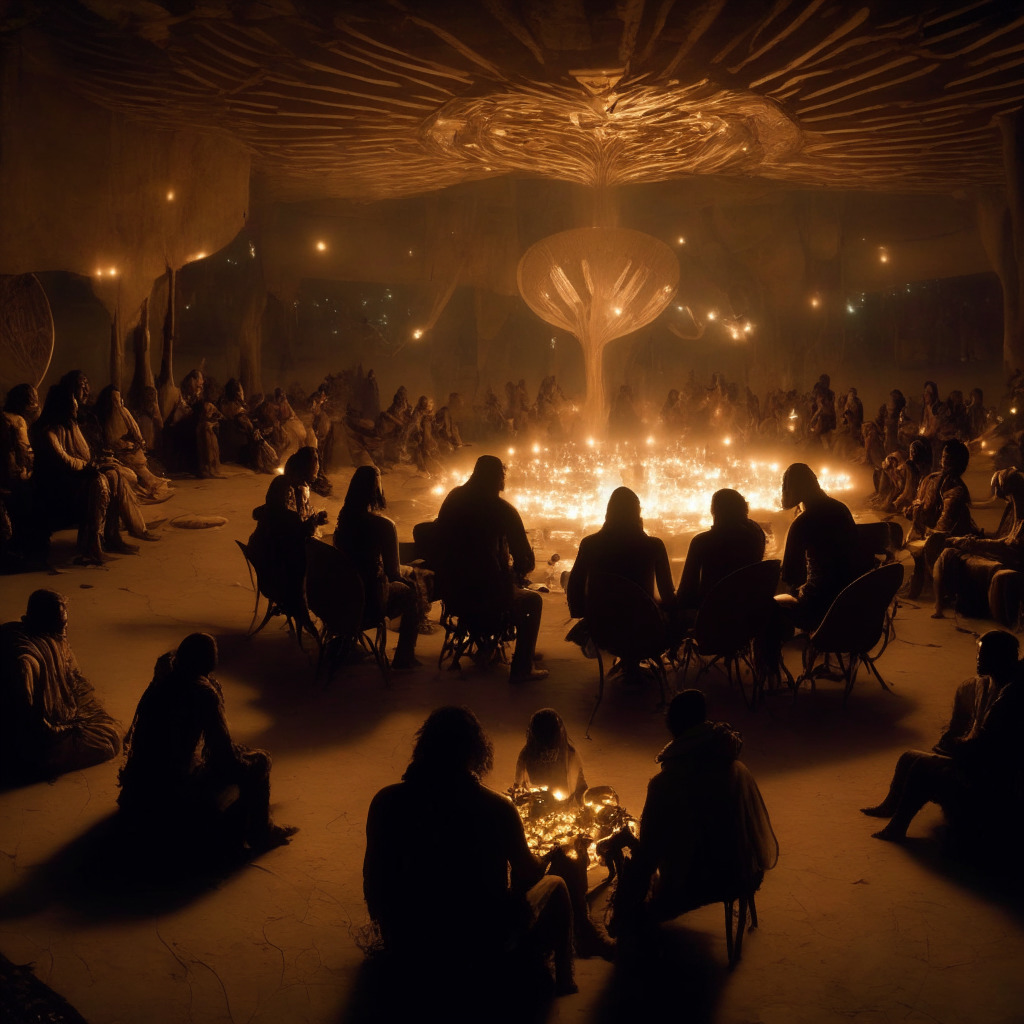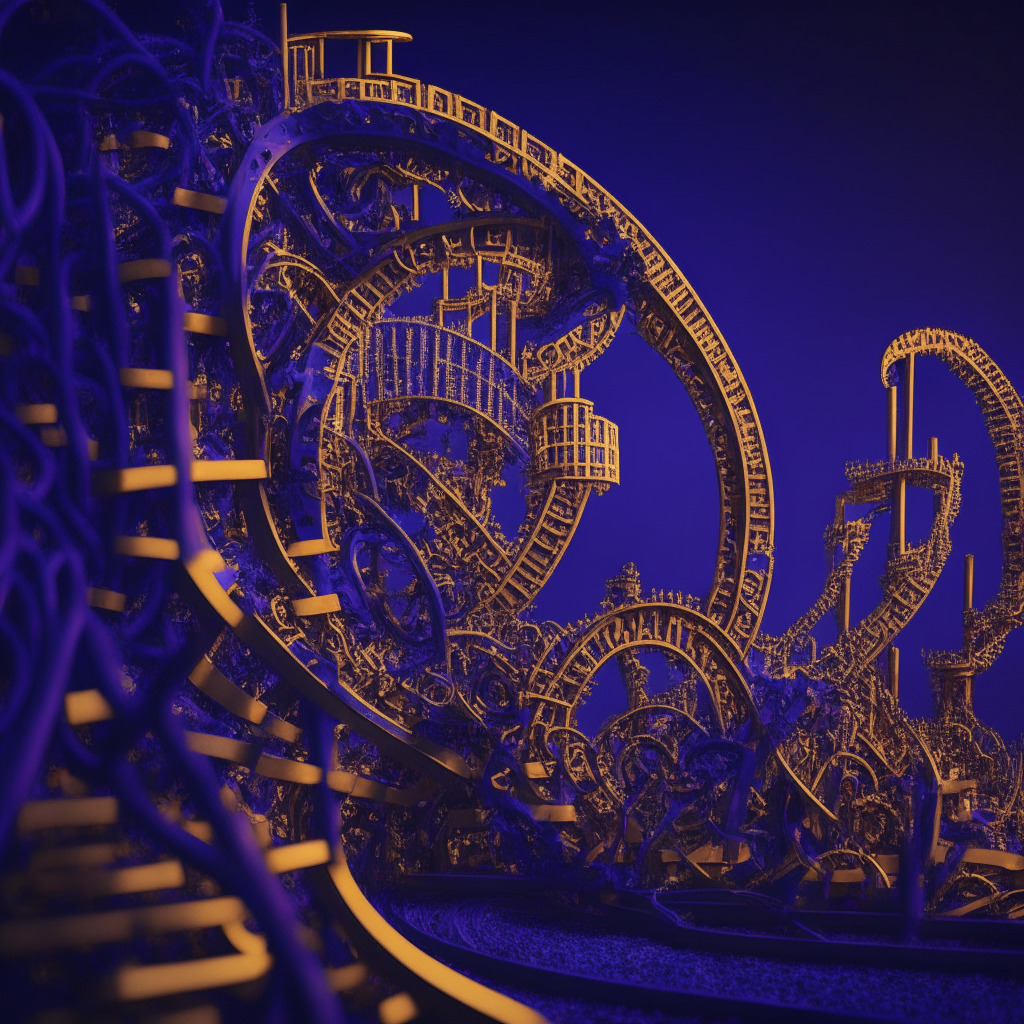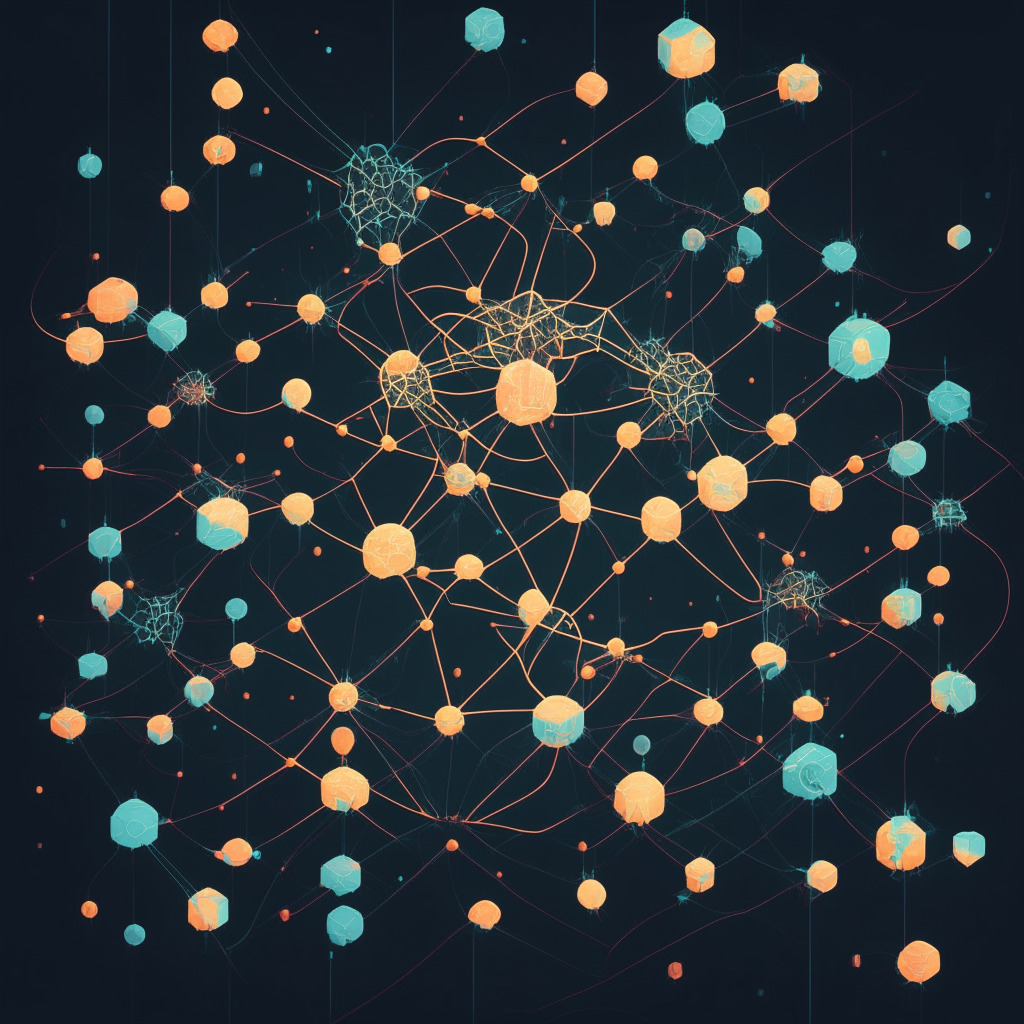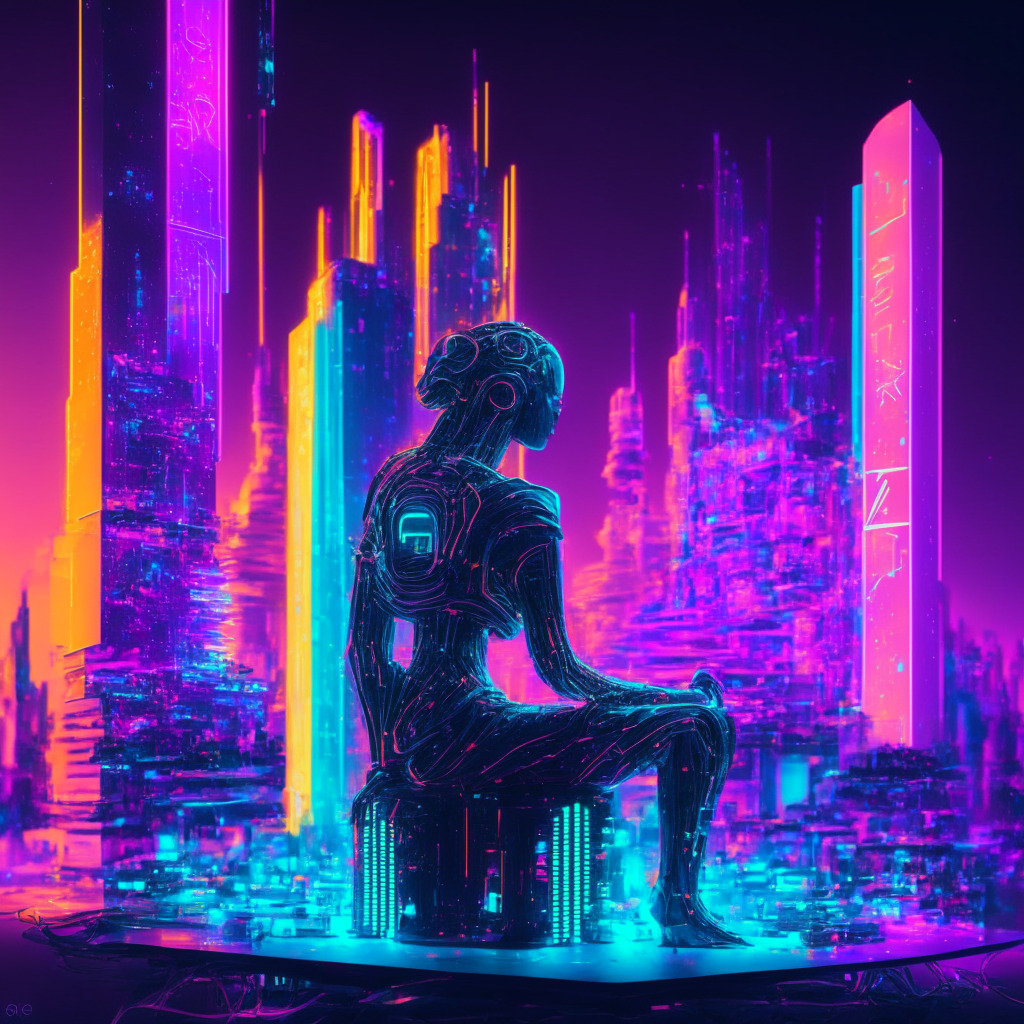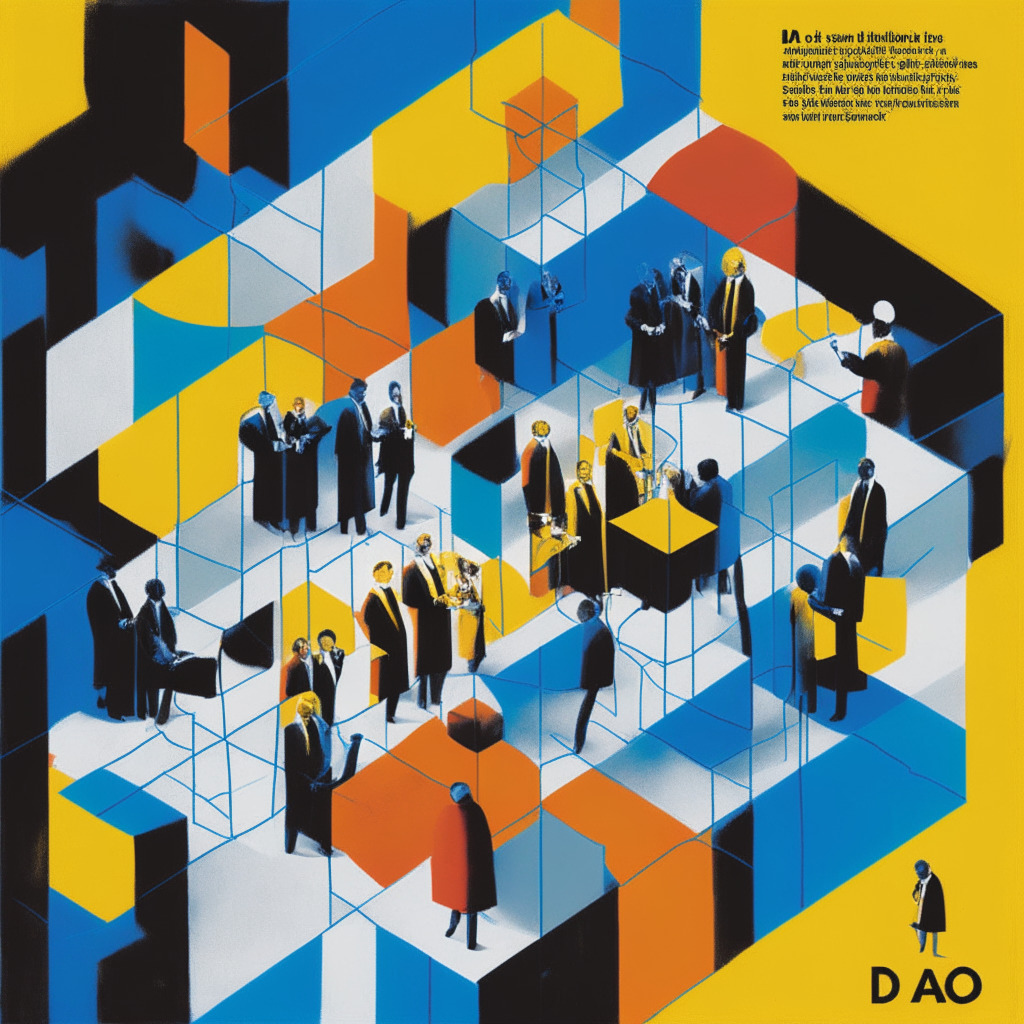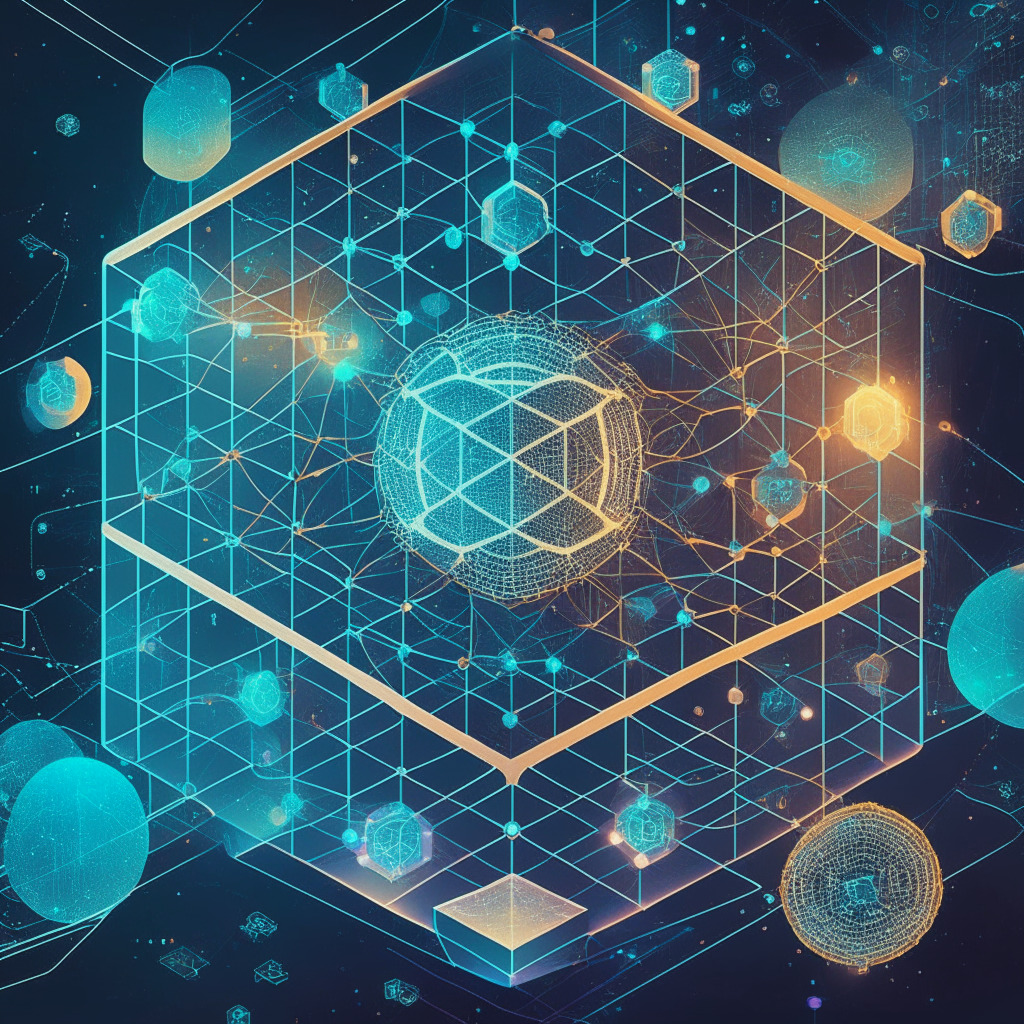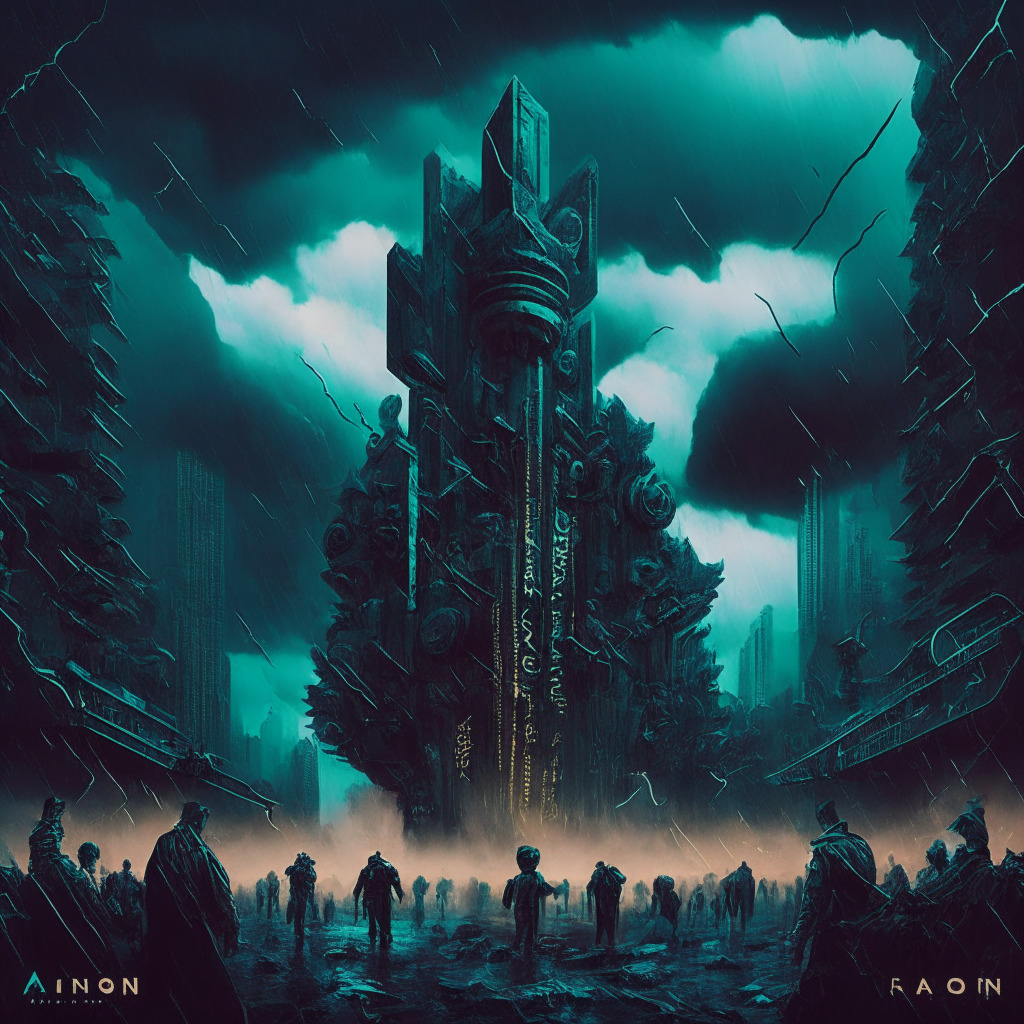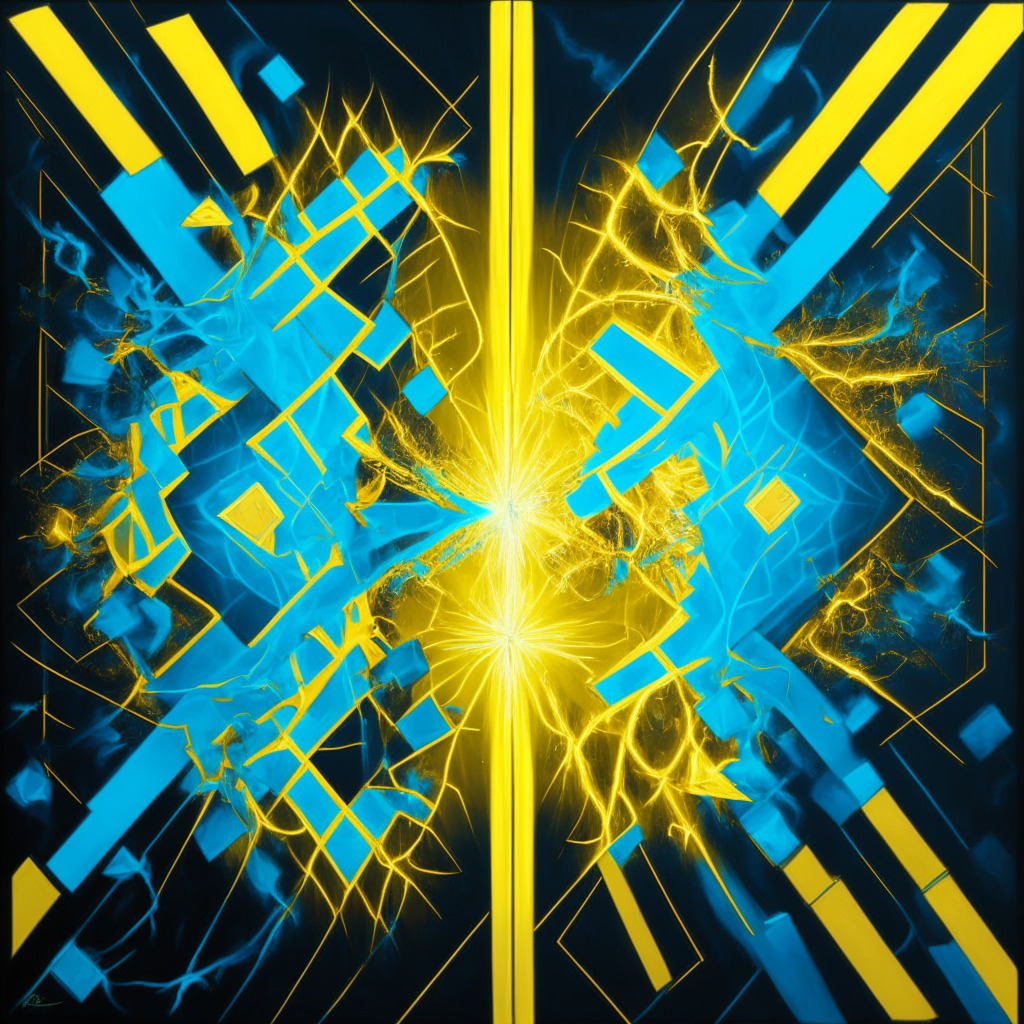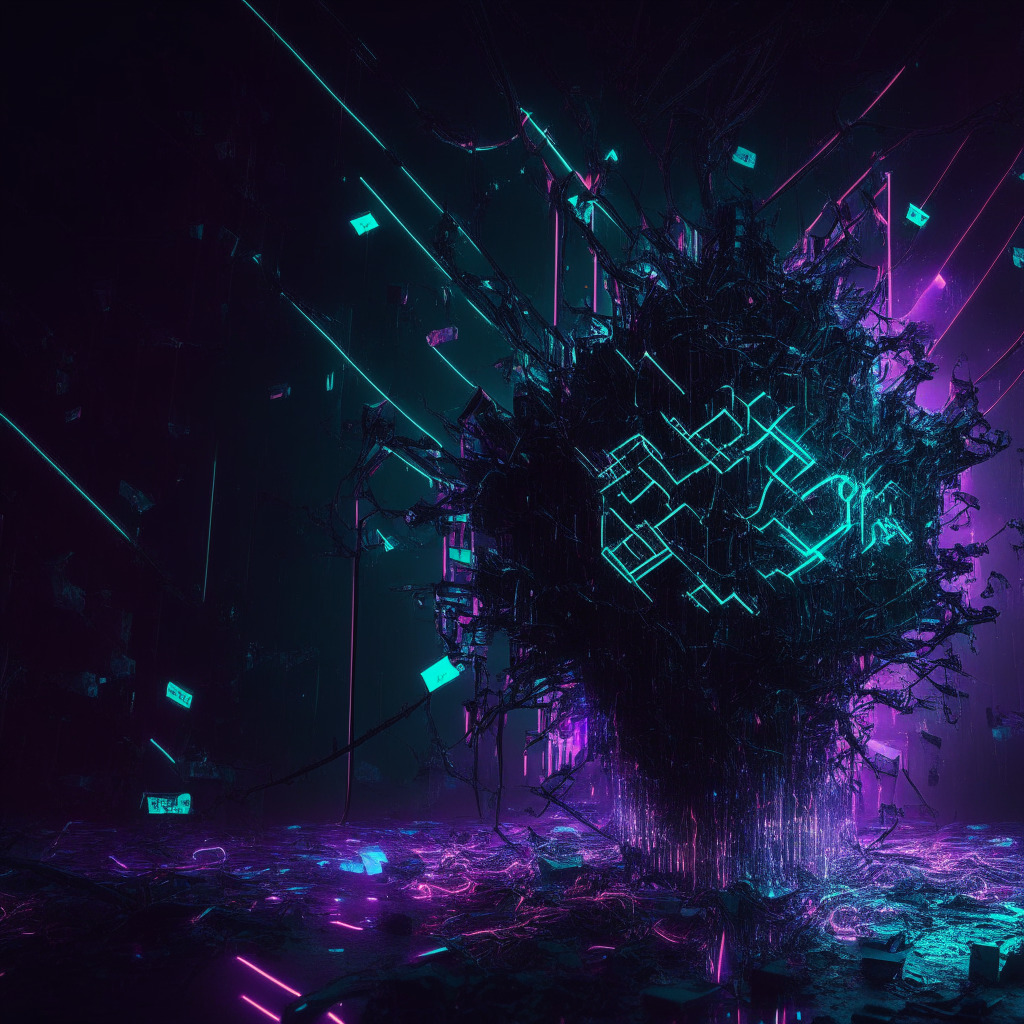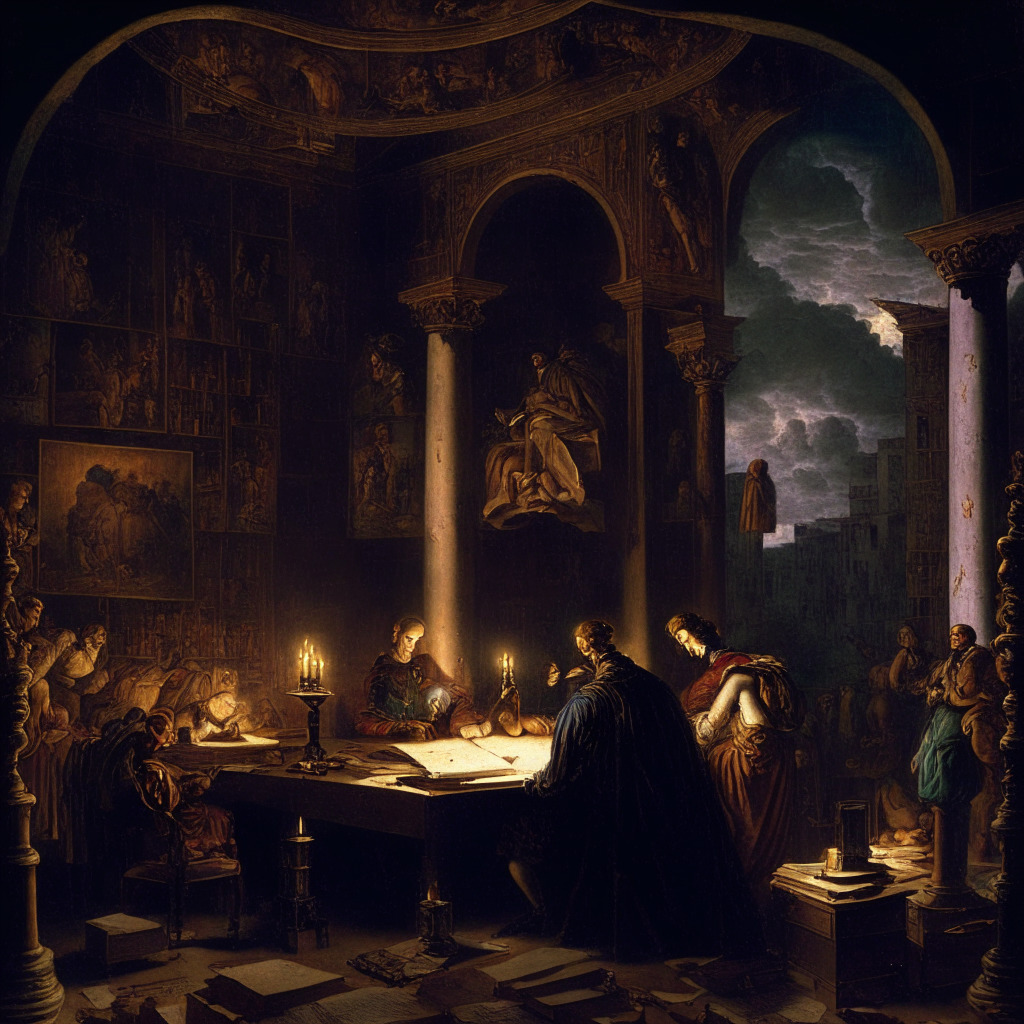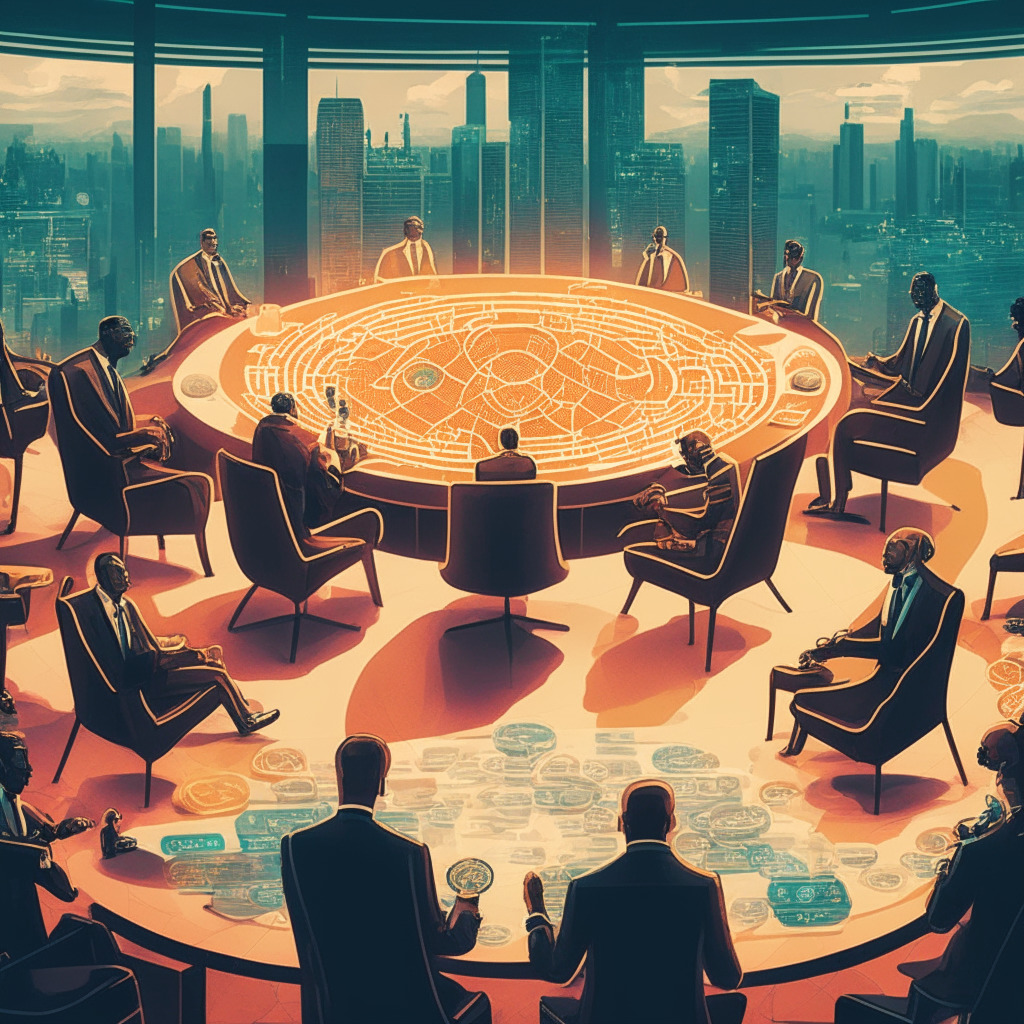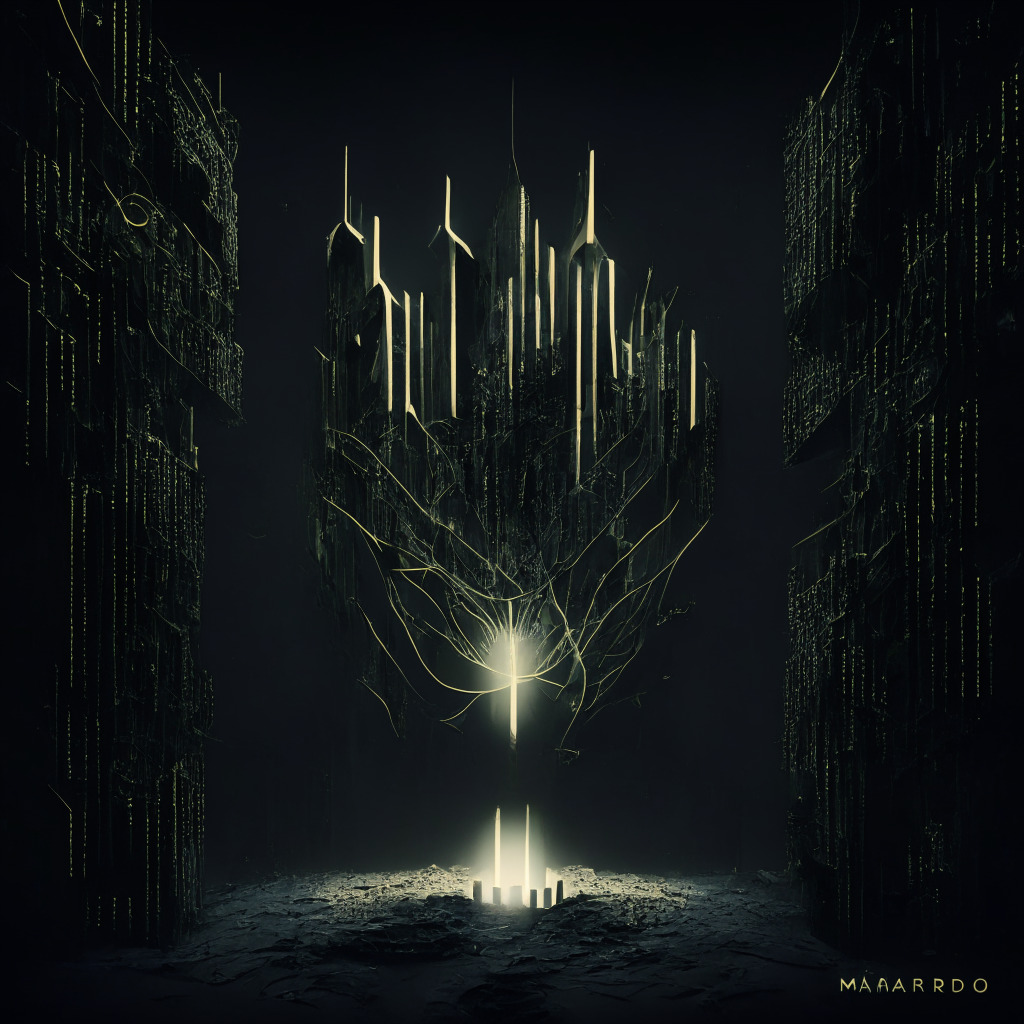Cryptocurrency exchange JPEX’s controversial transition into a decentralized autonomous organization (DAO) and its DAO Shareholder Dividend Scheme have led to allegations of unauthorized operations and duping, prompting regulatory scrutiny. This situation underscores cryptocurrency’s dynamic opportunities and potential risks, highlighting the need for education, vigilance, and prudent regulation in this evolving digital landscape.
Search Results for: DAOs
Revolutionizing Scientific Funding: The Emergence of DAOs and Blockchain Technology
“Decentralized Autonomous Organizations (DAOs), utilizing blockchain technology, are advocated by Nature science journal as transformative in securing funds for underfunded research fields. By disrupting traditional funding models, DAOs democratize funding procedures, potentially realign resources from only prestigious institutions to more varied sectors.”
Ethereum Co-founder’s Warning: DAOs and Vulnerabilities in Staking Pools
In his recent blog post, Ethereum co-founder Vitalik Buterin expressed concerns over Decentralized Autonomous Organizations (DAOs) dominating liquid staking pools, potentially opening doors to network vulnerabilities. He emphasizes the importance of engaging with various liquid staking providers to mitigate systemic risks.
Burning Man and DAOs: A Hybrid Model for Decentralized Governance and Broader Adoption
“Decentralized Autonomous Organizations (DAOs) could gain broader acceptance and adoption by marrying central planning with decentralized governance. This hybrid model could allow DAOs to gain recognition outside the crypto sphere, potentially fostering broader appeal and breaking away from their crypto rigidity.”
The Rollercoaster Ride of DAOs: Marvel of Decentralization or Havoc Waiting to Happen?
“Decentralized autonomous organizations (DAOs) manage a massive $17.2 billion in value. However, DAO governance is filled with numerous failures, underlining the need for improved DAO infrastructure and governance. Challenges of balancing decentralization and efficient product-market fit persist. Tools like Senate and Goverland aim to integrate DAO voting into single platforms, enhancing participation.”
NounsDAO’s Treasury Split: Unraveling the Rage Quit Phenomena in DAOs
NounsDAO, a key NFT player, faces potential treasury split driven by unsatisfied holders seeking better returns. Newly approved guidelines allow a ‘fork’ leading to an operational split. The situation highlights similar ‘rage quits’ within decentralized autonomous organizations (DAOs) as investor faith wavers.
Unleashing AI in Blockchain: The Future of DAOs or a Digital Divide Catalyst?
“Co-founder of Framework Ventures, Vance Spencer, suggests that AI could bring true “autonomy” to DAOs and envisions AI models becoming valuable on-chain assets. While this potential convergence of AI and blockchain holds promise, it also raises concerns about maintaining human oversight and preventing further digital divide.”
Harnessing Politics to Navigate DAOs: A Balance of Efficiency and Decentralization
“Decentralized Autonomous Organizations (DAOs) aim to balance efficiency and decentralization, akin to political organizations. Despite their distinct advantages, DAOs often face challenges like flawed governance, communication issues, and skewed participation leading to diluted long-term objectives. Strategies from politics, including electing representatives and preference-based decision-making, could be instrumental in overcoming these drawbacks.”
Decoding the Legal Matrix: Tornado Cash, DAOs, and the Future of Blockchain Oversight
A recent legal case saw a federal judge approving U.S. Treasury’s sanctions on Tornado Cash, a crypto tool allegedly used by North Korea for money laundering. The ruling, which validated an enforcement action against a Decentralized Autonomous Organization (DAO), sets a compelling precedent for DAOs’ future role in crypto projects.
Unleashing the Future: The Role of AI-Driven DAOs in Reshaping the DeFi Landscape
“Former BitMex CEO Arthur Hayes envisions a future where Decentralized Autonomous Organizations (DAOs) powered by AI could revolutionize the DeFi space. These AI DAOs, such as PoetAI, offer transparency, resilience against government control, and operational efficiency through cryptocurrencies like Ethereum. Platforms like Ethereum could greatly benefit from this new DeFi landscape. However, questions remain about the maturity of the DeFi arena and the readiness for fully autonomous DAOs.”
Unveiling Israel’s Approach to DAOs: Scrutinising the Crypto-Driven Architecture for Development
The Israeli government is conducting an exploratory examination on the regulation of Decentralized Autonomous Organizations (DAOs), scrutinizing the involvement of crypto tokens and assessing the risks involved. The aim is to strike a balance between encouraging innovation and preserving stakeholders’ interests. This includes considering corporate status, taxation, and other facets to stimulate the economy.
Israel’s Examination of DAOs: Democratizing Decision-Making and Dissecting Risks
The Israeli government has created a team to examine the world of decentralized governance organizations (DAOs). Comprised of high-ranking officials, the team will explore the potential uses, activities enabled, and decision-making processes inherent to DAOs, as well as the risks associated with their use of native crypto tokens. Through an open dialogue with the public and innovators in the space, this initiative aims to provide regulatory clarity in the crypto industry, a prized goal within the sector.
Climate Change & DAOs: Dueling Challenges for Marshall Islands – A Blockchain and Environmental Struggle
“The International Monetary Fund points to future instability for the Republic of Marshall Islands due to climate change and its embrace of blockchain technology through decentralized autonomous organizations. While noting possible benefits of green finance, it also cautions that digital ventures may impact the country’s financial stability.”
BORGs vs Traditional DAOs: Balancing Automation and Democratic Principles in Blockchain Governance
BORGs, or cybernetic organizations, aim to automate decision-making for DAOs, but their integration raises concerns about sacrificing democratic ideals for efficiency. Embracing automation could be shortsighted; DAO success hinges on maintaining an engaged, diverse community. Balancing efficiency and inclusivity should remain the primary focus in the blockchain space.
DAOs: Unleashing Decentralized Power or Struggling to Retain Participants?
Decentralized autonomous organizations (DAOs) hold immense potential for community engagement and financial decision-making but face challenges in retaining participants and achieving their mission. With a value of $8.7 billion in June 2022, key elements include shared treasury, smart contracts, and governance tokens, while successful DAOs balance innovative blockchain features with familiar collaborative practices.
DAOs vs Traditional Corporate Structures: Finding Balance in the Crypto World
The rise of decentralized autonomous organizations (DAOs) brings the question of whether they can replace traditional corporate structures. Hector Network, a DeFi project, discusses the possibility of adopting a more centralized future, addressing governance dilemmas and practicalities of operating a decentralized entity amid legal and regulatory issues.
dYdX’s Decentralization Journey: Balancing Governance & Efficiency with subDAOs
dYdX, a decentralized platform known for perpetual contracts, is exploring the establishment of additional subDAOs to further decentralize its ecosystem management. As dYdX upgrades to its fourth version on the Cosmos blockchain, it aims to create a more inclusive governance model by allowing the wider community to actively participate in decision-making, potentially setting a precedent for decentralized trading platforms.
Decentralizing Charity: How DAOs and Blockchain Can Revolutionize Aid Distribution
Marisa Rando of PactDAO suggests a decentralized model for charity organizations could lead to fairer aid distribution by bypassing bureaucracy. A decentralized autonomous organization (DAO) enables more organic participation, increased transparency, and improved decision-making while integrating blockchain-based features, potentially revolutionizing the future of charity and aid distribution.
Aragon’s Community Ban Wave: The Struggle for Decentralization and Free Speech in DAOs
Decentralized governance project Aragon recently banned multiple community members, raising questions about decentralization and autonomy within these organizations. Critics argue that some exiled members were merely expressing legitimate concerns, challenging the idealistic concept of Decentralized Autonomous Organizations (DAOs) and the central control that few stakeholders possess.
The Splintering of FloorDAO: Activist Investors and the Battle for Crypto Governance
Crypto group FloorDAO, devoted to NFT finance, has split into two factions due to disagreements. One splinter group, FloorkDAO, transferred over $2.5 million from FloorDAO’s treasury and initiated a redemption process for FLOOR tokens. This split highlights increasing influence of activist investors in DAOs.
Blockchain and DeFi Brilliance or Bust: Navigating through Security Concerns and Revolutionary Potential
“Blockchain’s role in decentralized finance (DeFi) experienced a record-breaking incident in September 2023, with over $300 million lost to exploitations. Despite security challenges, DeFi’s potential continues to attract diverse industries, but is also pressured by global regulations and business demands.”
DOJ vs. Former FTX Executive: A Crypto Legal Showdown and its Potential Impact
“The upcoming trial of former FTX executive, Sam Bankman-Fried, aims to unravel FTX’s approach in managing customer assets, a key factor for the case’s outcome. Meanwhile, Ethereum co-founder, Vitalik Buterin, expresses concerns about a possible monopoly by decentralized autonomous organizations (DAOs), highlighting potential vulnerabilities in the blockchain ecosystem.”
Unleashing AI on Cryptocurrency Markets: The Potential Blessings and Curses of ChatGPT
OpenAI’s AI-powered chatbot, ChatGPT is now able to extract current information from the web, expanding its role in providing insights about the mutable crypto world. Not only predicting crypto prices, the ChatGPT’s integration in crypto risk management enables the identification of emerging threats, making the system more robust.
Machiavellian Principles as a Key to Decentralized Governance: Opportunities and Challenges
“Machiavellian principles are seen as a potential solution for issues concerning decentralized autonomous organizations (DAOs) such as power centralization, according to venture capital firm Andreessen Horowitz. DAOs must balance power, entertain constant opposition, and adopt lockup mechanisms for stakeholders to achieve effective decentralized governance.”
Coinbase’s Web3 Wallet: Bridging Institutions with On-chain Applications, But Is It Enough?
“Crypto giant Coinbase inaugurates a Web3 wallet primarily focused on aiding institutions to venture into NFTs and other aspects of decentralized finance. The wallet, under the Coinbase Prime division, offers a gateway to crypto, NFTs, decentralized apps, and a broader DeFi spectrum, while ensuring the safety and security of client’s assets.”
Unraveling the Regulatory and Ethical Quagmires: Navigating through the Crypto Landscape
A U.S. federal judge delayed a sentencing hearing for radio host Ian Freeman, who allegedly created an illegal Bitcoin exchange used by scammers. Meanwhile, the DeFi Education Fund contests a patent claim by tech company True Return Systems. Also, DigiFT’s dETH0924 provides up to 4% APR, boosting Ethereum’s PoS mechanism, while crypto infrastructure provider Qredo integrated Circle’s USDC stablecoin into its wallet.
Heavy Hitters Form Crypto Freedom Alliance in Texas: Pathway to Clearer Digital Asset Regulations
“The newly formed Crypto Freedom Alliance of Texas, comprising key crypto entities, aims to promote clear regulations for digital assets in Texas through education. The initiative emphasizes the challenges of legal jurisdiction for Decentralized Autonomous Organizations (DAOs) and advocates for crypto-friendly tax laws and reshaped banking regulations.”
Decoding DeFi: Navigating the Maze of US Regulations and the Promising Blockchain Future
“The US DeFi landscape hit an inflection point as the CFTC filed lawsuits against three companies, accusing them of offering financial products without proper registration. Amidst ambiguity, questions arise about DeFi’s future in the US, regulatory hurdles, and potential to revolutionize world finance. Undoubtedly, for DeFi to truly flourish, regulatory clarity and a willingness to embrace the evolving landscape is crucial.”
Decentralized Finance: A Regulatory Riddle for Global Institutions
The International Organization of Securities Commissions (IOSCO) urges regulators to understand the real power holders in DeFi despite the system’s decentralized façade. IOSCO suggests these ‘responsible persons’ should comply with investor protection and market integrity standard. Current regulations may prove ineffective due to DeFi’s unique operation models, hence requiring new regulatory approaches.
Decoding the Future of MakerDAO: Might Solana be the Answer?
Rune Christensen, co-founder of MakerDAO, proposes the platform’s future blockchain should be built using Solana’s codebase, citing its high-speed performance. Despite support for the idea, community members raise questions about the research backing this proposal, suggesting alternative solutions might exist.
MakerDAO’s Counter-Market Surge: A Profitable Anomaly or a Dangerous Catch?
Despite the downturn in cryptocurrency prices, Maker (MKR) saw a significant rise due to modifications made to its lending rates in its core strategy. This reflects in MakerDAO’s recent bounce back to profitability, contrasted by a crypto market drop. The platform also launched a token buyback plan, boosting investor profits. Nevertheless, caution in investing practices is advised due to the unpredictable nature of the crypto space.
MakerDAO’s Investment Risk: Parsing the Pros and Cons of Blockchain Credit Platforms
An upcoming default on tokenized loans threatens blockchain-based platform, MakerDAO’s $1.84 million investment. A borrower from the credit pool, currently in a court dispute, is on the edge of liquidation, raising questions about the robustness of blockchain credit platforms.
